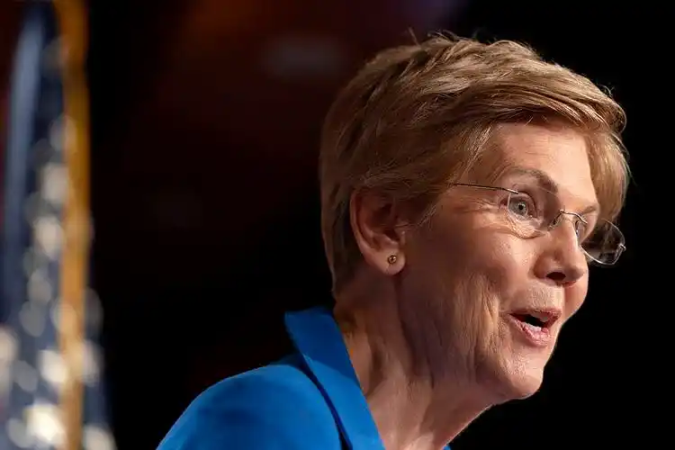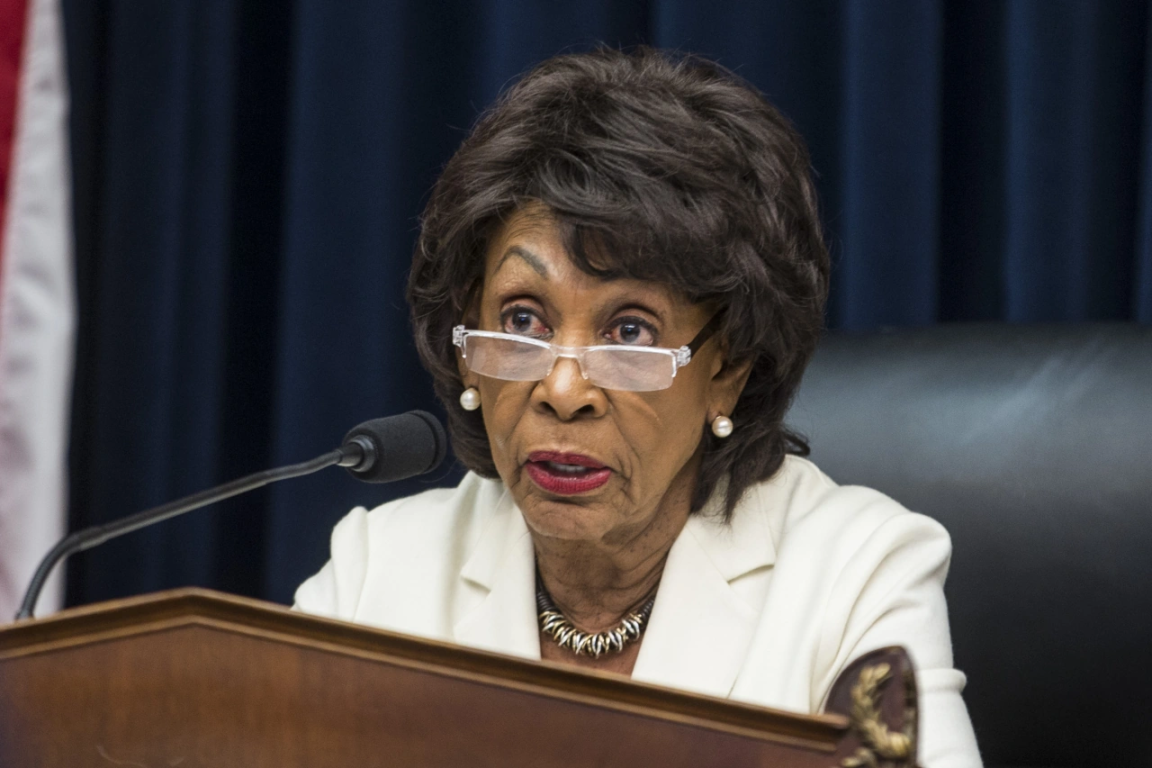By: Bright, Foresight News
On May 1, 2025, Elizabeth Warren, a senior Democratic member of the U.S. Senate Banking Committee, and five colleagues sent a joint letter to Treasury Secretary Janet Yellen, harshly stating that the Trump administration’s plan to include crypto assets in the national strategic reserves "may pose a systemic threat to the stability of the U.S. financial system."

This 12-page letter not only lists risks such as cryptocurrency price fluctuations and regulatory arbitrage, but also publicly questioned for the first time the transfer of interests between the Trump family and the crypto industry. World Liberty Financial (WLFI), a crypto company controlled by the Trump family, recently issued a stablecoin USD1, which was recently exposed to have reached a $2 billion investment agreement with the Abu Dhabi government-backed venture capital MGX. In the list of shareholders disclosed on the official website of WLFI, Trump family members hold a whopping 42% of the shares.
This is not the first time that the Democrats have attacked Trump's crypto policy. As early as April 29, Maxine Waters, the top Democrat on the House Financial Services Committee, successfully blocked the Republican-led joint hearing on the Crypto Market Structure Act on the grounds of "conflict of interest." In a letter to committee chairman Hill, she bluntly stated: "When the Trump family has made hundreds of millions of dollars in profits by issuing meme coins (TRUMP) and investing in DeFi projects, any bill that attempts to relax regulations will become a tool for money laundering."

The “Genetic Confrontation” of Bipartisan Encryption Policies
Democratic Party: From "Financial Security" to "Political Reckoning"
Elizabeth Warren, a "crypto hawk" in the Democratic Party, has a stance that dates back to 2017. At the time, the Cryptocurrency Act, which she led the drafting of, attempted to bring 90% of crypto assets under securities regulation, requiring exchanges to register with the SEC and disclose user information. This proposition was further escalated in a joint letter in 2025, where she proposed that the size of cryptocurrency reserves should be limited to 0.5% of federal assets, and that reserve assets must be held in compliant stablecoins such as USDC.
Stephanie Murphy, the Democratic leader of the House Financial Services Committee, focused on the issue of "national security". She presented FBI investigation data at a congressional hearing on April 30: money laundering transactions through cryptocurrencies increased by 370% year-on-year in 2024, of which 62% involved Russian oligarchs and Middle Eastern terrorist organizations. "When the Trump family conducts crypto transactions with Middle Eastern sovereign funds, we must be vigilant about whether this poses a new geopolitical risk." Murphy emphasized.
As the core infrastructure of the crypto ecosystem, stablecoins have become the focus of recent bipartisan bargaining. The Republican-led GENIUS Act attempted to establish a federal regulatory framework for the issuance of stablecoins, but the Democrats suddenly changed sides on May 4, with nine Democratic senators jointly opposing the existing version and demanding the strengthening of anti-money laundering and foreign issuer reviews. This shift directly caused the probability of the bill passing the Senate to drop sharply to 37%.

Republican Party: From "Innovation Freedom" to "Strategic Layout"
In stark contrast to the Democratic Party, the Trump administration is systematically promoting the "strategization" of crypto assets. The executive order signed on January 24 established a digital asset working group led by David Sacks, the AI and crypto commissioner and "crypto czar", and required a report within 180 days that included a stablecoin regulatory framework and national crypto reserve standards. On March 6, Trump went a step further and signed an executive order, announcing that the 200,000 bitcoins (about $18 billion) held by the federal government would be included in the national strategic reserve, and exploring the inclusion of assets such as XRP and SOL in the reserve system.
Behind this policy shift is the Republican Party's far-reaching layout for "digital dollar hegemony." The analysis of strategic consulting firm Rhodium Group pointed out that Trump's new crypto policy attempts to migrate the settlement function of the US dollar from the traditional banking system to the blockchain through the "stable currency + on-chain assets" model, thereby avoiding the impact of geopolitical friction on the status of the US dollar.
Trump's crypto policy trends directly affect market sentiment. On March 2, when the White House announced the possibility of exploring crypto asset reserves, the price of Bitcoin soared 12% in 24 hours, breaking through the $95,000 mark. However, this optimism did not last. After the Democratic Party's joint letter was exposed on April 29, the price of Bitcoin plummeted 8% in a single day, and the market value evaporated by more than $200 billion. On-chain data shows that WLFI sold a total of 128,000 ETH (about $350 million) from March 1 to April 30, which coincided with the peak of market selling pressure.
The turbulent “crypto empire”
As the operator of his family's crypto business, Eric Trump's personal wealth is deeply tied to the crypto industry. In addition to serving as an ambassador for World Liberty Financial, he also serves as a consultant for Japanese crypto giant Metaplanet and American Bitcoin, a US bitcoin mining company, with a total annual salary of more than $20 million.
This conflict of interest has aroused strong dissatisfaction among the Democratic Party. Warren bluntly stated in a joint letter: "When Eric Trump promoted the Dubai Crypto Tower at the Token2049 Summit, he was essentially using the political capital of the presidential family for financial harvesting." The center-left watchdog organization Accountable.US in the United States called the Trump Coin Ranking Plan "the most blatant presidential corruption and money-making plan in American history" and believed that it would open the door for wealthy donors to contact the US president and make it easier for the Trump family to enrich themselves.
According to OpenSecrets data, the crypto industry donated more than $120 million to federal political candidates in 2024, of which 78% went to the Republican Party. Coinbase and other leading companies donated $35 million to the Trump campaign through PAC (Political Action Committee) in exchange for policy support. This "money politics" has heightened the Democratic Party's vigilance. Congressman Brad Sherman presented evidence at the hearing: WLFI's investors include Saudi sovereign wealth funds and Russian oligarchs, and these funds may be laundered through crypto transactions.
Silicon Valley's tech giants and Wall Street's "old money" are split in this game. BlackRock CEO Larry Fink publicly supports Trump's crypto reserve plan, saying that "Bitcoin is digital gold to fight fiscal deficits." Peter Schiff, a well-known economist and gold bull, insisted that "both U.S. stock index futures and the U.S. dollar were sold off. But gold and Bitcoin once again showed diametrically opposite trends. Gold behaved like a safe-haven asset, rising by about 1%. Bitcoin's trading performance was like a risky asset, falling by about 2%. Obviously, Bitcoin is not digital gold."

Currently, there are three key bills before the U.S. Congress: the Republican-led Crypto Market Structure Act, the Democratic-led Crypto Consumer Protection Act, and the bipartisan compromise Stablecoin Regulatory Framework. Analysts point out that if Trump fails to push for at least one bill to be passed by November 2025, the crypto industry will face the risk of a "regulatory vacuum."
May 6 is the deadline for the White House to establish a strategic Bitcoin reserve and a U.S. digital asset reserve order, requiring the Secretary of the Treasury to submit an assessment report within 60 days. Can the Trump administration submit this "homework" on time?












